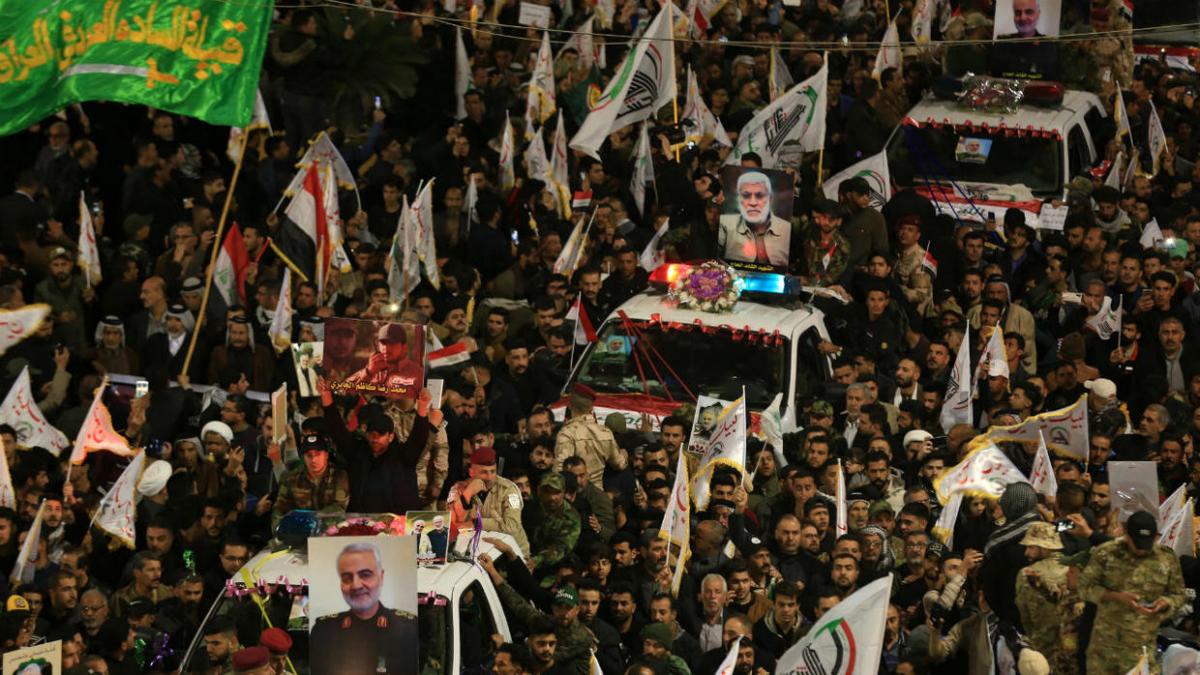There are no products in your shopping cart.
| 0 Items | £0.00 |

 NIGERIA has already begun benefitting from the recent stand-off between Iran and the US as the price of crude oil has shot up to $69 a barrel over the last three days in response to the assassination of General Qasem Soleimani on Friday.
NIGERIA has already begun benefitting from the recent stand-off between Iran and the US as the price of crude oil has shot up to $69 a barrel over the last three days in response to the assassination of General Qasem Soleimani on Friday.
In a development that has sparked off global tension, the US carried out air strikes against Bagdad International Airport on Friday, under the instructions of President Donald Trump. Iran has promised to avenge the death, with the country's supreme leader Ayatollah Ali Khamenei saying that severe revenge awaits the criminals behind the attack.
Iran has announced three days of national mourning and a bounty of $80m has been put on the head of President Trump, escalating tension worldwide. In response to the tense situation, the price of Brent crude oil has jumped from around $61 on Friday to $69 a barrel and risks rising further as the rhetoric gets tougher.
Nigeria's budget is predicated on selling 2m barrels of oil at $60 a barrel and the rise in prices is a good development for the economy. Things may get worse as President trump has warned that the US would strike back, perhaps in a disproportionate manner, if Iran attacked any American person or target.
Stock markets in the US and the UK fell on the news, ending recent rallies, as investors moved money into gold and government bonds, traditional safe havens in times of turmoil. Ian Shepherdson, the chief economist of the consultancy Pantheon Macroeconomics, said that full-blown war between the US and Iran was unlikely but that oil industry infrastructure across the region would be a prime target in the event of tit-for-tat escalation.
Mr Shepherdson said: “It’s hard to overstate the geopolitical importance of Friday’s assassination. Iran right now is reeling from the assassination but the leadership is dominated by hardliners and the question is how, not whether, they will respond. For markets, the key issue is the impact of the Iranian response on oil prices."
Oil installations and crude shipments have been increasingly targeted in recent months amid rising tensions in the Middle East. About a fifth of the global oil supply flows through the Strait of Hormuz, a narrow shipping route between Oman and Iran which is one of the world’s most important strategic choke points.
Sanctions imposed by the US have dragged down the Iranian economy and driven up inflation and petrol prices in recent months, triggering protests in which hundreds of protesters have been killed by the army and police. Oil companies listed on the London Stock Exchange rallied against a backdrop of steep losses for company shares elsewhere around the world, with gains for firms including BP and Royal Dutch Shell.
Economists say that higher oil prices represent a tax on oil consumers and a windfall for producers. Mr Shepherdson said that world oil consumption is equivalent to about 100m barrels per day, meaning that every $5 increase in prices is equivalent to an annualised tax of about $183bn a year, or 0.1% of the world economy.
Despite the latest attack, the price of oil remains below a peak of about $75 a barrel reached in April last year but this could change in the event of all out war. Several major nations have become less dependent on Middle Eastern oil in recent years, including the US, which has ramped up domestic shale production.